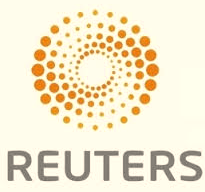by Sam Won
(Excerpted from comments Sam Won made speaking at HedgeWorld’s 2011 Fall Fund Services Conference on Oct. 26, 2011)
Unfortunately, the third quarter has made your life tougher for both managing your portfolio and for raising assets. There are two reasons why: UBS and market volatility.
The recent events at UBS already have and will continue to affect hedge funds. While there are many differences between the Swiss bank’s most recent risk management debacle and how most hedge funds do business, their high profile trading blunder has shone a harsh spotlight of attention from both investors and regulators who have yet another reason to put more focus on risk management. As a result of the blow up at UBS, risk management at financial institutions will be under greater scrutiny for some time, and that includes hedge funds both big and small.
Hedge funds that possess some risk measurement (those that calculate some risk statistics on their portfolio), are under pressure to show that they have actual risk management processes and controls rather than just “window dressing” risk reports, which some firms attempt to pass off as being risk management. As for the hedge funds that have no formal processes for risk measurement and management, in today’s environment they will stick out like sore thumbs. The owners of these hedge funds will find themselves scrambling to retain their current investors let alone attract new ones.
Then there are the performance hits and drawdowns that hedge funds recently suffered as a result of the third quarter’s volatility. This also has brought much attention to how hedge funds are managing, or not managing, their risks.
To give you some context, consider these economic highlights from the third quarter of 2011:
- Hedge funds suffered their worst three months since the peak of the 2008 financial crisis with almost every type of alternative investment strategy losing money for investors.
- Aside from the final quarter of 2008 following the collapse Lehman Brothers, hedge funds only fared worse during 1998, after Russia defaulted on its sovereign debt.
- Only two out of 18 strategies tracked by HFR made money in September: funds specializing in shorting stocks were up 6.9 percent on average for the month, while those that took a quantitative approach to betting on interest rates and currencies eked out an average gain of 0.2 percent.
- The 14.3 percent decline in the S&P 500 Index in the three months through September was the worst quarterly loss since 2008, leaving the index down 10 percent since the start of 2011.
- Also for the S&P 500 Index it moved on average 2.5% per day between August 5 and August 30. Never in the history of the S&P 500 had there been alternating gains and losses of more than 4% in four consecutive days, until August, that is.
Producing alpha has never been more difficult than it is in today’s volatile markets. At my risk management advisory firm we find that the one bad apple effect from UBS’s trading desk mismanagement, coupled with ongoing volatility in the markets, poor fund performance and resulting drawdowns, are causing investors to further question and probe deeper in their due diligence efforts as to how, specifically, their hedge fund managers are managing risk.
In the year ahead we predict that hedge funds will find themselves more frequently challenged to persuade investors that they can manage risk as well as produce performance. On this front, many fund managers look like “fair weather” performers who are not able to make the case that they can manage risk.
As investors take a more skeptical look at fund managers’ infrastructures, processes and controls for managing risk many hedge funds will find themselves in serious trouble because they lack formal infrastructure, processes and controls for risk management. Too many hedge funds have been largely managing risk by the seat of their pants. In today’s environment this is a sure fire ticket to redemptions from institutional investors.
# # #
Samuel K. Won is the Founder and Managing Director of Global Risk Management Advisors, Inc., a leading independent risk management advisory firm that provides advisory services to asset managers and institutional investors. He has over 25 years of risk management, capital markets, trading and portfolio management experience at major financial institutions, and has advised regulatory agencies, such as the SEC, the Federal Reserve Bank, the Office of the Comptroller, FHLBB and the FSA, on major risk management, trading and capital markets issues and policies. He can be reached at 212-230-1610 or info@grmainc.com.
To view the full PDF of the article, please click here.

